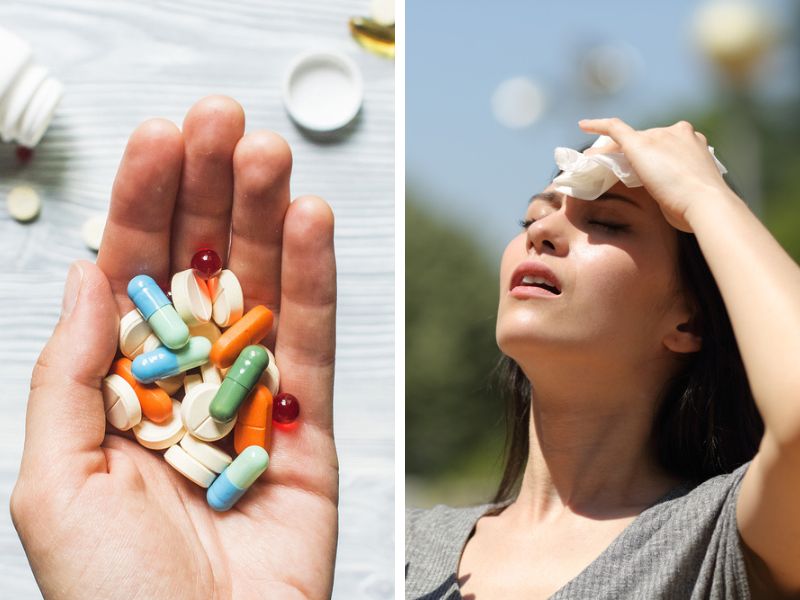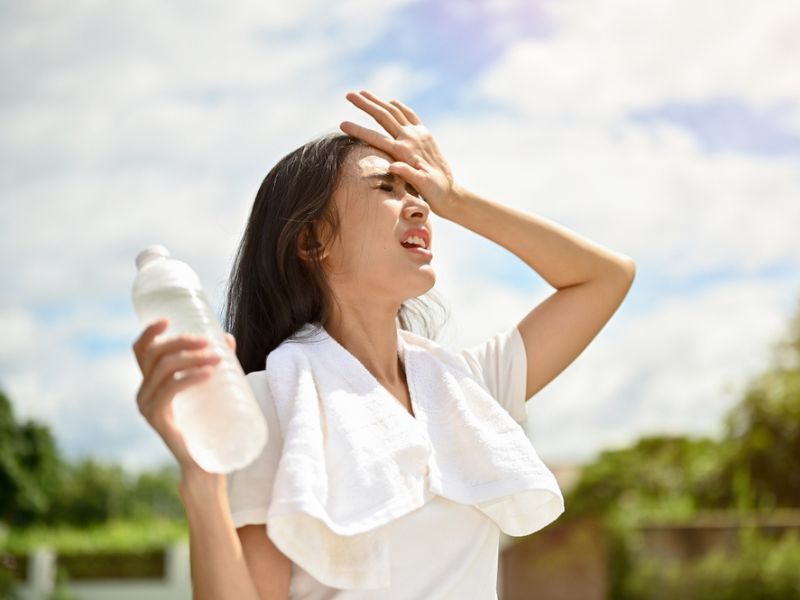Taking steps to mitigate side effects like heat stroke is essential when taking antidepressants, which can be vital for improving mental health. The risk of heat stroke, however, may increase during the summer. Should we be concerned about this?
Can Antidepressants Cause Heatstrokes?
Antidepressants can impair the hypothalamus, which regulates body temperature. Some antidepressants, namely those used to treat bipolar depression, can crease sodium levels, resulting in dehydration and water loss.
When you’re already hot and bothered in the summer heat, these side effects don’t help. A heat stroke occurs when your body temperature rises due to dehydration and the inability to sweat or drink enough water.

Image Credit: Shutterstock/Lunatta & Shutterstock/Pheelings media
The Riskiest Antidepressants
- Selective Serotonin Reuptake Inhibitors (SSRIs): Increase sweat production, resulting in heat stroke.
- Tricyclic Antidepressants (TCAs): Cause hyperhidrosis, also known as “excessive sweating.”
- Other Concerning Medications: Effexor, Wellbutrin, Lithium, as well as antipsychotics prescribed to treat depression.
Likelihood Of Experiencing A Heatstroke
Despite the risks of dehydration and heat stroke that everyone presents, older adults are more likely to experience them due to their slower metabolization. Blood pressure medication carries risks, and sun exposure doesn’t help much. The best way to prevent a heat stroke is by staying hydrated and avoiding being outdoors.
Research shows that about 20% of those taking antidepressants experience excessive sweating. Therefore, Shaili Gandhi, the vice president of pharmacy at SingleCare, recommends taking extra precautions and remaining cool, especially in high temperatures.

Image Credit: Shutterstock/BongkarnGraphic
What To Do To Prevent A Heat Stroke?
- Stay hydrated
- Avoid drinks that worsen dehydration
- Avoid the heat by staying in the shade
- Consult your doctor for advice
- Change your eating habits by eating cold foods that are high in fluids
- Dress loosely and lightly